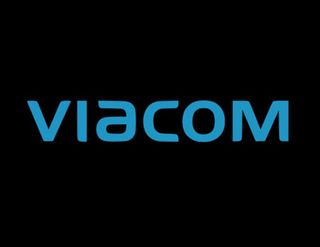Greater Than the Sum of Their Parts

A decade after the split that was supposed to unlock the hidden value inside Viacom, some pundits are calling for the home of MTV Networks to put the old band back together by recombining with broadcaster CBS in an aggressive move to restore value and clout to the once-powerful cable networks.
Recent moves by Sumner Redstone, Viacom’s ailing top shareholder, to possibly oust CEO Philippe Dauman and the board of directors have brought the conversation to the fore.
But many say stitching Viacom and CBS back together would be a long, costly process that might make both weaker rather than stronger.
SpringOwl Asset Management hedge fund manager Eric Jackson has been one of the loudest proponents of reconstituting the old Viacom, combining the broadcast and cable assets and placing CBS chairman and CEO Les Moonves and his team firmly in charge.
Jackson pins most of Viacom’s woes on executive chairman and CEO Philippe Dauman and thinks a CBS-Viacom recombination would offer cost savings and greater efficiencies, as well as the obvious changes in management.
TARGET: NEW MANAGEMENT
Viacom might indeed rise out of the ashes of its current predicament — but possibly too late for Dauman. “Investors will value other management taking over,” Pivotal Research Group senior research analyst, advertising Brian Wieser said in an interview. “You could literally put anyone in the CEO spot.”
Multichannel Newsletter
The smarter way to stay on top of the multichannel video marketplace. Sign up below.
Wall Street’s top candidate would be Moonves, who has overseen a huge resurgence at CBS in the past 10 years, while Dauman has seen Viacom’s value diminish. The biggest question, Wieser said, is if Moonves wants to take on the daunting task of reviving Viacom or would rather continue on his current path of growing’s CBS assets.
Under Moonves, CBS stock has more than doubled in price, to $55.17 from $26.64 per share, over the last 10 years.
CBS expects retransmission-consent revenue to reach $1 billion by year-end (up from “tens of millions” after the 2006 Viacom split) and to more than double to $2.5 billion by 2020.
Moonves has been quick to the attack on the over-the-top front, launching CBS All Access, which last year attracted an estimated 100,000 monthly subscribers. CBS has projected it could have 4 million customers by the end of 2020.
Moonves has deflected merger talk, saying on a 2015 earnings call, “We’re feeling pretty strong about ourselves and don’t need any partners.”
One roadblock could be finding an acceptable premium for Viacom, which currently has an enterprise value of about $29 billion, about the same as CBS’s EV of about $32 billion.
Wieser said a Viacom-CBS combination makes sense on some fronts and there could be tons of synergies across the board, but Moonves and CBS would have to articulate their vision for the company for any recombination to work.
Viacom still has value in that its Nickelodeon networks reach more kids than any other programmer, Wieser said. In the music arena, MTV Networks could recapture some of the lost mojo in that sector with new programming introduced at the most recent upfronts. “It really comes down to whether there is a fundamental belief in the durability of the assets,” he said. “I believe there is value in the assets, but it’s understandable why some don’t have that view.”
Others, like Telsey Advisory Group media analyst Tom Eagan, think the risks would outweigh the rewards, adding that Viacom’s problems could also be solved with time and the move toward Total Audience Measurement.
Total Audience, which is beginning to emerge from ratings companies Nielsen and comScore, potentially will track all viewership all of the time, even those elusive viewers who watch content on every device but their TVs.
CROSS-PLATFORM ELEVATION
One of Viacom’s biggest problems has been declining ratings at its youth-oriented networks, which have driven ad sales down and made the company vulnerable in affiliate-fee negotiations.
“The inclusion of more cross-platform measurement is going to help Viacom,” Eagan said. “You could arguably say it will help them more than any other cable-network group, because so much of their viewership is off-linear. But they need to be able to monetize it.”
Wieser wasn’t so sure that Total Audience would be Viacom’s magic bullet. He believes the company’s problems are much deeper, even more than its failure to develop shows its core audience wants to see and the loss of talent like Comedy Central’s Stephen Colbert and Jon Stewart.
“The fundamental problem Viacom has is, it has a controlling shareholder,” Wieser said. “Investors never seem to care [about that] until things go badly.”
